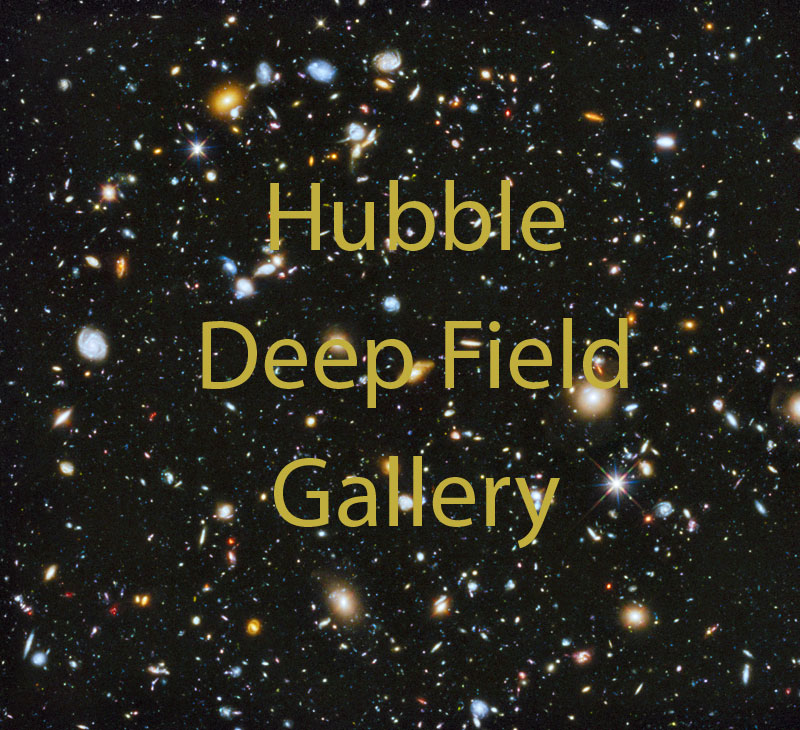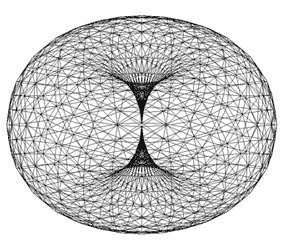It looks like you're using an Ad Blocker.
Please white-list or disable AboveTopSecret.com in your ad-blocking tool.
Thank you.
Some features of ATS will be disabled while you continue to use an ad-blocker.
share:
From Hubble ESA.. Interesting ?

www.skyimagelab.com...
The observable Universe has 10 times more Galaxy's than Previously thought.

www.skyimagelab.com...
The observable Universe has 10 times more Galaxy's than Previously thought.
Astronomers using data from the NASA/ESA Hubble Space Telescopes and other telescopes have performed an accurate census of the number of galaxies in the Universe. The group came to the surprising conclusion that there are at least 10 times as many galaxies in the observable Universe as previously thought. The results have clear implications for our understanding of galaxy formation, and also help solve an ancient astronomical paradox—why is the sky dark at night? Read more at: phys.org...
One of the most fundamental questions in astronomy is that of just how many galaxies the Universe contains. The Hubble Deep Field images, captured in the mid 1990s, gave the first real insight into this. Myriad faint galaxies were revealed, and it was estimated that the observable Universe contains about 100 billion galaxies. Now, an international team, led by Christopher Conselice from the University of Nottingham, UK, have shown that this figure is at least ten times too low. Read more at: phys.org...
edit on 13 10 2016 by skywatcher44 because: Added
a reply to: skywatcher44
And thats just the "observable" part.
Data from the Hubble, including the Two Hubble Deep Fields has shown us that as far as we can see there are just more Galaxies.
I be willing to bet if we could put a Hubble on the furthest observable object and look still further, we'd see the same thing.
The Universe is infinite. It goes on forever. It has always been there. Life has had forever to develop and spread pretty much everywhere.
The observable Universe has 10 times more Galaxy's than Previously thought.
And thats just the "observable" part.
Data from the Hubble, including the Two Hubble Deep Fields has shown us that as far as we can see there are just more Galaxies.
I be willing to bet if we could put a Hubble on the furthest observable object and look still further, we'd see the same thing.
The Universe is infinite. It goes on forever. It has always been there. Life has had forever to develop and spread pretty much everywhere.
edit
on 13-10-2016 by intrptr because: additional
Thats means we can all have one and all be rulers of the galaxy!.
Mind boggling my mind has been blown twice today cheers .
Mind boggling my mind has been blown twice today cheers .
Pretty amazing when your dealing with numbers that are almost impossible to fathom. I'm sure in another few years it will be 100x instead of just 10,
and so on.
originally posted by: Encryptor
a reply to: skywatcher44
Thus is the nature of the hologram.
Nothing is real?
Including you then, too.
Thats means we can all have one and all be rulers of the galaxy!.
good , finally some peace
originally posted by: Encryptor
a reply to: skywatcher44
Thus is the nature of the hologram.
If we are living within a hologram/virtual universe/simulation, then we are literally still made of the stuff of stars. Therefore, to us, our universe is as real as we are...simulated or not.
A factor of 10 is pretty good! But that is with Hubble. When the James Webb Space Telescope is launched I suspect the number to increase yet again.
Wonder what the SKA will reveal? Heck, even that huge radio telescope in China that was just completed so I wonder how it will tie in. Even the VLA in
New Mexico was upgraded and being tied in with orbiting radio telescopes to vastly increase virtual aperture size. If they do that with the one in
China...
We are on the cusp of yet more great discoveries!
We are on the cusp of yet more great discoveries!
edit on 13-10-2016 by TEOTWAWKIAIFF because: clarity in prose
Cool indeed, wondering how many more well find when our tec/telescopes has gotten way better and can see further than before or at one stage even
beyond what we thought was possible.
Staggering to think about.
Staggering to think about.
The number was staggering to begin with. If you stop for a moment and try to imagine the sheer size of just 1 galaxy and then think about a trillion.
Just damn.
Time we start meeting our neighbors and throw a galactic block party.
Just damn.
Time we start meeting our neighbors and throw a galactic block party.
Why are they afraid of infinity?
space is endless.
show me the centre of the big bang?
a explosion THAT big would show signs!
they have found nothing at ALL!
the only thing they have shown is that All things in
space move away from each other equally.
space is endless.
show me the centre of the big bang?
a explosion THAT big would show signs!
they have found nothing at ALL!
the only thing they have shown is that All things in
space move away from each other equally.
originally posted by: buddha
Why are they afraid of infinity?
space is endless.
show me the centre of the big bang?
a explosion THAT big would show signs!
The gigantic cold spot in the Cosmic Microwave Background radiation may be the trace of our universe impacting another one.
According to the multiverse hypothesis, each universe (including our one) is like a bubble.
originally posted by: buddha
show me the centre of the big bang?
a explosion THAT big would show signs!
they have found nothing at ALL!
It's not an explosion. It's like a nexus point. Like this:

The "Big Bang" is that point at the center. Expansion that is pulled back into a singularity.
originally posted by: Blue Shift
originally posted by: buddha
show me the centre of the big bang?
a explosion THAT big would show signs!
they have found nothing at ALL!
It's not an explosion. It's like a nexus point. Like this:
The "Big Bang" is that point at the center. Expansion that is pulled back into a singularity.
An interesting theory, but there is no observation that shows it is true. In this model, there are places you can be in the expansion where you could observe object coming towards you and going away. All we can see, and in all of the Hubble imagery as well, shows a doppler shift of moving away... in every direction.
new topics
-
Of course it was DEI
Dissecting Disinformation: 9 hours ago -
2nd Day Thanksgiving!...(leftovers!!)
General Chit Chat: 11 hours ago
top topics
-
Of course it was DEI
Dissecting Disinformation: 9 hours ago, 6 flags -
2nd Day Thanksgiving!...(leftovers!!)
General Chit Chat: 11 hours ago, 3 flags
active topics
-
I thought Trump was the existential threat?
World War Three • 124 • : andy06shake -
Mass UAP events. DC. Machester Airport, UFOs over sub base in CT, Nuke bases.
Aliens and UFOs • 26 • : CosmicFocus -
Unidentified Flying Objects Over U.S. Military Bases in Northeast UK, as of roughly 11 a.m. CST.
Aliens and UFOs • 34 • : bastion -
Post A Funny (T&C Friendly) Pic Part IV: The LOL awakens!
General Chit Chat • 7850 • : KrustyKrab -
Of course it was DEI
Dissecting Disinformation • 10 • : Dalamax -
-@TH3WH17ERABB17- -Q- ---TIME TO SHOW THE WORLD--- -Part- --44--
Dissecting Disinformation • 3417 • : brewtiger123 -
2nd Day Thanksgiving!...(leftovers!!)
General Chit Chat • 6 • : DontTreadOnMe -
New Disney Star Wars Films Failing Test of Time?
Movies • 18 • : Popoll -
The Party of Peace - Trump Cabinet Picks Targeted with Death Threats
US Political Madness • 51 • : RazorV66 -
Results of the use of the Oreshnik missile system in Dnepropetrovsk
World War Three • 263 • : DontTreadOnMe
